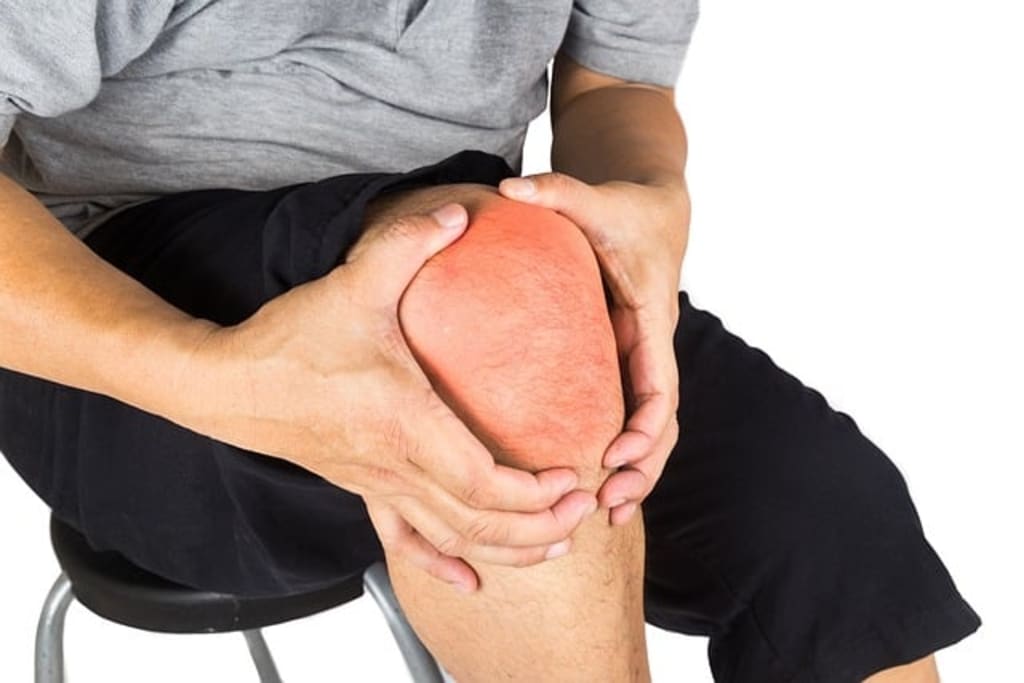Can Prostatitis Cause Thigh Pain?
Exploring the Connection Between Prostatitis and Thigh Pain

Prostatitis is a common condition in urology and men's health, typically caused by bacterial infections. It can be classified into acute prostatitis and chronic prostatitis based on the duration and symptoms of the disease.
Chronic prostatitis is more common and exhibits a complex array of symptoms, including pelvic discomfort, perineal pain, and sexual dysfunction. In addition to these common symptoms, some patients may experience thigh pain.
When prostatitis patients suffer thigh pain, it may be related to the spread of inflammation, nerve reflexes, joint and muscle disorders, or prostate tissue hyperplasia.
1. Spread of Inflammation
Inflammation from prostatitis can cause congestion, swelling, or enlargement of the prostate area, which may radiate pain to the inner thigh.
When the prostate is inflamed, inflammatory factors may spread to the thigh through the bloodstream, irritating local nerve endings and causing thigh pain. This pain is often described as a dull or aching sensation that may intensify with the severity of the inflammation.
In severe or untreated cases, pathogens can circulate throughout the body via the bloodstream, potentially affecting the musculoskeletal tissues of the legs and causing localized pain. Accompanying symptoms may include chills and fatigue.
2. Nerve Reflex
Prostatic inflammation can trigger a reflex pain mechanism via the pelvic nerves, leading to pain in distant areas such as the thigh. This phenomenon, known in medicine as "referred pain", occurs when internal organ diseases cause pain in a seemingly unrelated body part through neural connections.
Since the prostate is innervated by the pelvic sympathetic nerves, which also have branches extending to the lower limbs, inflammation of the prostate can stimulate these nerves and produce radiating pain symptoms, manifesting as thigh pain.
3. Joint and Muscle Disorders
Neglecting to keep warm or overexerting can damage other areas, such as the knee joint, hip joint, and thigh muscles, triggering aseptic inflammatory responses. These can result in soreness, swelling, and other discomforts in these regions.
4. Prostate Tissue Hyperplasia
Enlargement of prostate tissue may compress the sciatic nerve, causing pain in the legs, feet, and thighs. The sciatic nerve is the longest in the human body and transmits sensory and motor information to the lower limbs.
When it is compressed by hyperplastic prostate tissue, referred pain symptoms such as thigh pain may occur.
How to Manage Thigh Pain Caused by Prostatitis
1. Medication is a crucial approach to alleviating thigh pain caused by prostatitis. Doctors often prescribe appropriate antibiotics, such as levofloxacin hydrochloride tablets or ampicillin capsules, to eliminate or inhibit bacterial growth and reduce inflammation.
Patients can also take non-steroidal anti-inflammatory drugs (NSAIDs) like celecoxib capsules or enteric-coated aspirin tablets under medical supervision. These medications can effectively alleviate pain and discomfort caused by inflammation.
For patients who do not respond well to antibiotics and NSAIDs or experience recurrent symptoms, traditional Chinese medicine, such as Diuretic and Anti-inflammatory Pill, can be considered.
2. Heat therapy and massage can effectively address thigh pain. Applying a warm towel-wrapped ice pack or a hot water bottle to the abdomen can promote blood circulation, helping to relieve muscle spasms in the thigh and reduce pain.
3. Maintaining a regular lifestyle is crucial in managing prostatitis and its symptoms. Avoid prolonged sitting and activities like long-distance cycling or motorcycling.
Regular moderate exercise, such as jogging or walking, and ensuring a balance between rest and activity can improve prostate blood circulation and reduce inflammation.
Additionally, keeping a positive mood and ensuring adequate sleep can be beneficial.
4. In severe cases where prostate tissue hyperplasia significantly compresses the sciatic nerve, causing intense thigh pain, surgical intervention may be necessary.
Surgery is typically considered for patients with severe conditions or those who do not respond to medication. The surgical procedure involves removing the hyperplastic tissue or alleviating nerve compression to relieve thigh pain.
Surgical treatment is not the first option for all patients and should be decided upon with the guidance of a healthcare professional.
About the Creator
Enjoyed the story? Support the Creator.
Subscribe for free to receive all their stories in your feed. You could also pledge your support or give them a one-off tip, letting them know you appreciate their work.





Comments
There are no comments for this story
Be the first to respond and start the conversation.